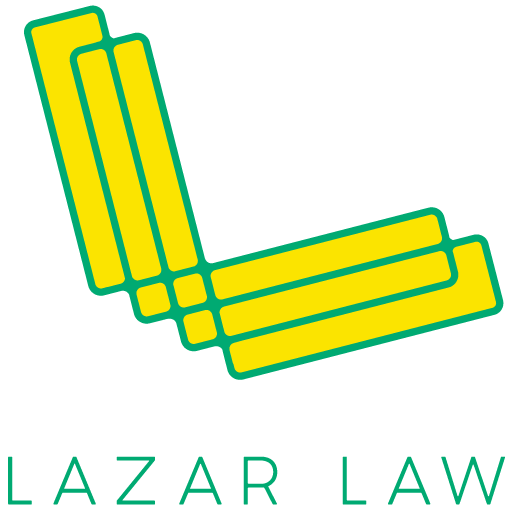
With the COVID-19 pandemic, navigating the parenting landscape for divorced and split parents has reached a new level of complicated.
Back in March, we were faced with the immediate issue of interpretation of parenting time schedules, given their connection to the school calendar. The Texas Supreme Court issued an emergency order to clear things up for all Texas divorced or split families.
Now, the decision is whether to register kids for remote or in-person learning, but this time there is no over-reaching guidance from the Texas Supreme Court for Texas families; and from what we are learning from the justices and judges in our state, no blanket rule will be coming.
The decision to register your child for remote or in-person learning is an education decision. In Texas, the right to make decisions regarding a child’s education can be exercised jointly by agreement of both parents, by one parent exclusively or independently by each parent.
If you are already divorced or split, your Texas divorce decree or SAPCR Order should state how the parental right to make education decisions is to be exercised in your family.
If parents don’t agree on how their child should be educated during COVID-19, The Court will not decide where your child goes to school; the Court may decide to change which parent has the right to make the education decisions. To get the Court to make that change, you have to file a Modification lawsuit.
Just because one parent has the exclusive right to make education decisions doesn’t mean you should not consider seeking a modification if you do not agree with the other parent’s decision regarding your child’s learning environment. The Court is considering this issue on a case-by-case basis. If you can present evidence that the exclusive parent’s choice is bad for your child’s health, safety and welfare, the Court may award the right to make education decisions to you.
If you do not yet have a court order regarding parental education decision-making, you need one. Without an order, either parent is authorized to register the child for the chosen learning module.
We want to share some timely information that can help you evaluate your options.
If you have a Court Order…
Exclusive Right to Make Education Decisions.
In the simplest of circumstances, one parent has the exclusive right to make decisions and elections for the child’s education. In theory, this eliminates conflict because there is less
to fight about. In practice, however, it can be problematic in these unique times if the decision being made has a negative impact on the health of the child or a member of a household in which the child resides, or places a significant burden of sorts on the other parent that renders the situation untenable for the other household. If this is the case for your child, a modification might be necessary for your family.
Required Agreement for Education Decisions.
You most likely have a Court Order that requires you and your co-parent to reach agreements, which can be especially troublesome under these circumstances when it seems like everyone feels so polarized about everything. Tensions are high! To make matters worse, most schools will allow only one parent to submit elections or decisions (it’s not the school’s responsibility to make you and your co-parent agree!). Locally, we know the decision of whether to have your child attend in-person or online-only can be amended at the end of each grading period with most schools. However, the impact of the decision dramatically affects both households and the burdens placed on each parent, so disagreements are expected. If you cannot agree, you should consider engaging family lawyers to represent you in a mediation before a modification is necessary for your family.
Independent Right to Make Education Decisions.
You are very unlikely to have this in your Court Order because, with respect to education decisions, it doesn’t make all that much sense. If you are experiencing a disagreement with your co-parent, then rather than continuing to live in the Wild Wild West, get in to speak with a family lawyer about how you may be able to modify your Order so that it better addresses decisions that must be made for your child.
What does Modification look like for your Family?
It is important to speak with a family lawyer about what you can modify and how you should approach modification with your co-parent. In your Court Order, you may be required to mediate your dispute. Even if you aren’t required to mediate, it may be the best forum for quickly resolving your urgent situation.
If mediation is not an option for you, for whatever reason, then you should meet with a family lawyer to learn about what Court looks like these days. As you can imagine—it’s a different world on Zoom for all of us, but the Courthouse, even in the Cloud, is still bustling!
If you don’t have a Court Order…
Handling disputes with your co-parent without some rules of the road can be tough. If you need a Court Order to help you navigate parenting decisions, invest in the time to meet with an experienced family lawyer about your options. You deserve to receive advice tailored to your specific circumstances so that you are equipped to pursue a Court Order, either through negotiation or litigation, that is best for your child. Not all Orders are created equal—just because it’s good for your neighbor, doesn’t mean it’s right for your family!
In case of EMERGENCY…
Regardless of whether you have a Court Order that adequately addresses the unique circumstances for your family, if you are experiencing a custody emergency, you may have the right to ask the Court for an emergency order. Like anything these days, pursuing an emergency order is not, “one size fits all.” The Courts are busy, so enlisting an experienced family lawyer to shepherd you through the process will be invaluable.
If you have questions about education decision-making rights during the pandemic, our experienced Austin family law attorneys at Lazar Law are available to discuss your concerns. Call 512-477-1600 today.



